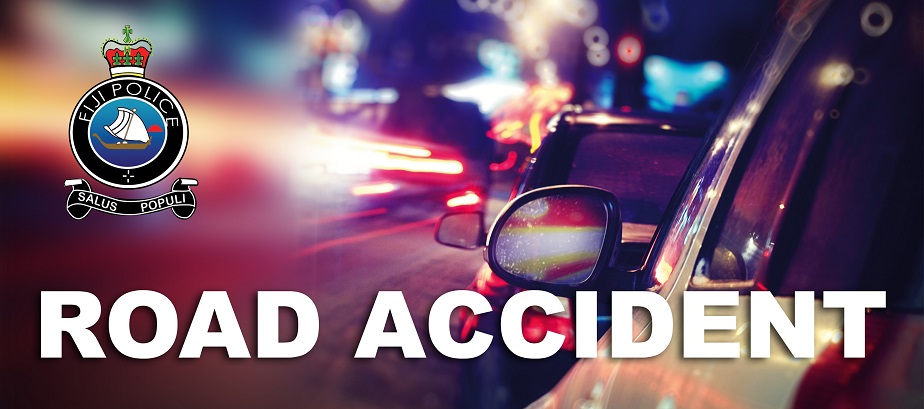LAST week, we talked about the traditional warriors of Nabukadra Village of the Kavula District in the coastal area of Nakorotubu in Ra. The warriors of Gonesau, known as the Vuaka Loa (wild boar) was known to have the most powerful warriors in Fiji at the height of tribal wars and cannibalism in the 19th century.
It was told that this was because the warriors were always covering their bodies with charcoal and because they were feared as powerful. They were supernaturally strong and travelled over the seas to fight other tribes and only the coconut husks were visible moving on the water.
The Gonesau provided superior military support to Bau — Fiji’s strongest empire at the time and the ruler of Fiji.
In the centre of Nabukadra is the grave of Ratu Mara Kapaiwai, a high chief of Bau Island belonging to the Roko Tui Bau clan, who was killed as a result of intra-family rivalries involving his cousin, the then ruler of the kingdom of Bau, Ratu Tanoa Visawaqa in the early 19th century. Ratu Mara Kapaiwai is the grandfather of the late Ratu Sukuna, one of Fiji’s most prominent leaders and great-grandfather of former vice-president of Fiji, Ratu Joni Madraiwiwi. The grave remains a prominent landmark in the centre of the village to this day.
Josateki Navakavanua from the yavusa Naqeledamu, who are the traditionally bestowed storytellers, said Ratu Mara was banished from Bau after he rivalled his cousin from the Vunivalu clan.
Although he was supposed to head towards Verata, where he also had traditional ties, he decided to set sail for Nabukadra. However, the Gonesau was befriended by both Ratu Mara and his cousin Ratu Tanoa Visawaqa because of their close family link.
For that reason, village elders including the Gonesau could not send Ratu Mara away because of their relationship. Mr Navakavanua said nothing could be done as the Gonesau was related to both the Vunivalu and the Roko Tui Bau.
However, he returned to Bau and of course he was subjected to a death penalty. Mr Navakavanua said Ratu Mara had clearly instructed before his return that if he was to be killed, his body was to be returned to Nabukadra because he feared being labelled as the kaisi (bastard) or he would be treated as a bokola (his heart will be eaten by the Vunivalu of Bau).
“If his heart is eaten, it would mean that his family was no longer noble. They would lose their chiefly title to become a commoner,” Mr Navakavanua said.
While detained by the Vunivalu, Ratu Mara had his madrai ni viti (bread) brought from Nabukadra by the Vuaka Loa. The bread was also his last meal before his death and it had tasted sour for him. That was how his son, Ratu Joni Madraiwiwi was named. Madraiwiwi means sour bread. Ratu Joni is Ratu Sukuna’s father.
Because Gonesau had promised to retrieve his body, the news of his death was known to them.
“His heart was going to be eaten and his body was to have been used for the vakasobu ni duru. Before, a body would be buried with the post of a newly built house with the belief that it was to make the foundation stronger. Ratu Mara was subjected to that,” Mr Navakavanua said.
“And so the preparation was done and the Vuaka Loa warriors were sent out to get his body back as promised by their chief, the Gonesau.”
Nabukadra is located at a new site. The old village site (koro makawa), located up the mountain was a prime spot for a war village. Mr Navakavanua said when their warriors were sent out on a mission; yaqona (kava or grog) would be mixed and consumed by the elders until their return (worshiping their God). He said there was a tanoa vatu (kava bowl made of stone) used that was more like a compass.
“This indicated where the warriors were moving and whatever they were up to was known to the chief and the elders back in the village,” Mr Navakavanua said.
And on that particular day, the elders continued worshiping as the warriors went on their very important mission.
“Like it was told, people still talk about how it was possible for them to steal Ratu Mara’s body as it was heavily guarded. According to stories told, all the guards feel asleep as the warriors approached. How it happened, no one knew but probably it was because of what was happening back at home,” Mr Navakavanua said.
“His body was retrieved and the Vunivalu was furious when he found out. Ratu Mara had also requested for his vana ni waqa (sail of his canoe) to be buried with him and it was exactly what happened. Over the years, we have strengthened (with concrete) the grave nicely as it is our landmark and it is a symbol of our past and how we managed to conquer back in the days.”
Mr Navakavanua said the project of rural electrification was implemented, a lamppost was constructed right beside the grave but that was the only streetlight that was not working.
“There was no light from there and we knew it was because of the grave. It needed to be respected so we had to remove it again.”
He also revealed that the Cakobau Government was also formed in the village. Visible out at sea as we look from the village is the stones that extend out to sea. Mr Navakavanua said that was a crossing built by the inmates who were held prisoners at the village.
“The buli now known as the district officer was based at Nabukadra at the time and the prisoners were from Ba and Ra,” he added.
Today, people of Nabukadra are still rich in culture and tradition. They are proud of their history that indicated they were part of an era and the change that came after.





